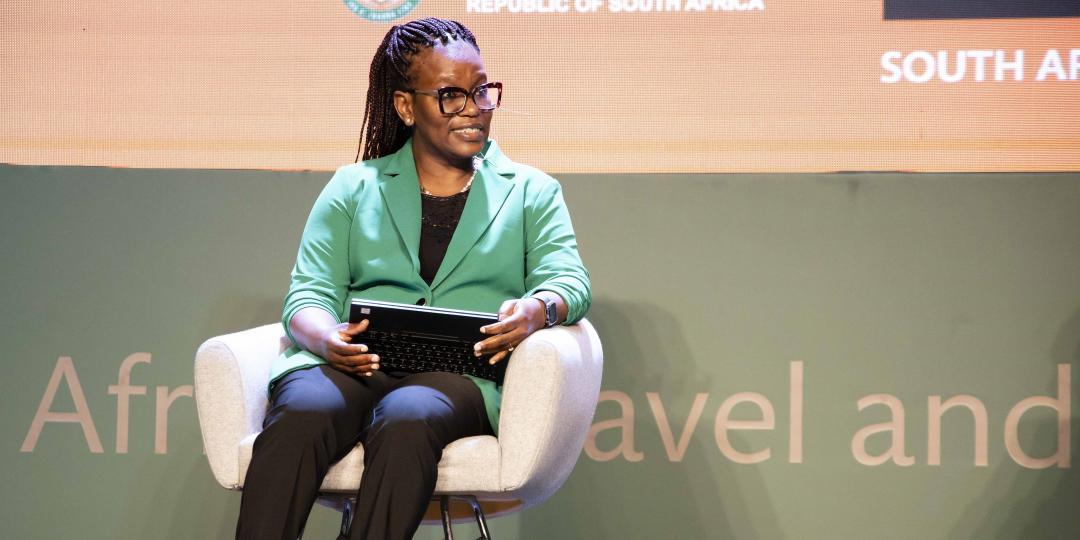South Africa’s growth and recovery trajectory has been derailed by the latest developments in which key international source markets imposed stringent travel restrictions and travel bans against 10 southern African countries, including SA, following the discovery of the Omicron variant of COVID-19.
“SA Tourism’s short term strategic initiatives and trade engagements in key source markers were starting to pay off as we saw an increase in bookings with more and more travellers wanting to visit South Africa again,” highlighted Acting Chief Executive Officer for SA Tourism, Sthembiso Dlamini.
She added that, over the last few months, there was increased global optimism and confidence in South Africa, with more airlines reinstating direct flights to the country and more strategic partners engaging in the promotion of the South African tourism sector.
“We were truly on the right trajectory to save jobs in our industry. This latest development is certainly going to have a devastating effect on our tourism industry, airlines and business partners,” said Dlamini.
She joined the Tourism Business Council of South Africa (TBCSA) in applauding the diligence of South Africa’s globally renowned local scientists who discovered the variant through collaborative efforts with laboratories and the Network for Genomic Surveillance in South Africa and acted swiftly to inform the rest of the world, in compliance with their international obligations.
“Our country’s epidemiological reputation is world-class and South Africa prides itself on this. This important discovery was also noted and commended by Secretary of State in the US, Antony Blinken who praised South Africa for quickly identifying the new COVID-19 strain and sharing this information with the world,” read a joint SA Tourism/TBCSA statement.
Both organisations reiterated that while the South African scientists correctly and proactively informed the world in contributing to the global efforts to alleviate the spread of the new variant, this did not mean that the variant originated in South Africa.
Post South Africa’s discovery of this new variant, it has emerged that the Omicron variant has been detected in various other countries around the world including Australia, Belgium, Spain, Portugal, Germany, Italy, Hong Kong, Israel, Denmark and the Czech Republic.
“The latest travel bans on South Africa are extremely disappointing and premature considering the limited information we have about this new variant. Whilst we cannot control the international market, we can control how we handle the crisis domestically, and will support the government to amplify vaccination opportunities and protect lives and livelihoods that depend on the tourism industry
“Further restrictions will exacerbate an already devastated and ailing tourism industry and will negatively affect various other industries in South Africa.” said TBCSA CEO, Tshifhiwa Tshivhengwa.
Scientists working around the clock
He noted that, although there is currently limited data on the new variant as has been noted by WHO, South Africa’s scientists were working around the clock, using established surveillance systems to understand the new variant and to allow for the most effective interventions.
“We welcome government's response and will support all efforts to curb the spread of Covid-19 and to deal with the consequences of the pandemic,” said Tshivhengwa.
He expressed hope that South Africa would remain able to soon welcome visitors from across the world, with Dlamini adding: “We would like to emphasise that our country remains open for all those travellers who wish to visit.”
“We also encourage all South Africans to continue with their plans to go out there to explore and enjoy travelling within South Africa, while observing guidelines laid out by the national command centre from time to time. The resilience of domestic tourism is key to the recovery of South Africa’s tourism sector and to the economy as this help avoid any further job losses,” said Dlamini.
Both Dlamini and Tshivhengwa have emphasised their complete confidence in the country’s health sector, which they says “has demonstrated resilience, competence and excellent expertise since the outbreak of the pandemic in March 2020”.
‘Biggest weapon is vaccinations’
Over and above this, added Tshivhengwa, South Africa’s businesses have provided safe tourism products, venues and establishments by implementing and adhering to globally benchmarked health and safety protocols and norms and standards.
“We would like to encourage these businesses to continue enforcing these protocols. The importance of non-pharmaceutical interventions such as the compulsory wearing of masks, maintaining social distancing and regular washing of hands as well as socially distanced limited gatherings in well-ventilated spaces remain in place. The safety of South African residents and all visitors to the country remains of the utmost importance.”
“We would like to also remind South Africans of the importance of getting vaccinated. As a country, we know that our biggest weapon against COVID-19 at this stage is vaccination and observing of the non-pharmaceutical safety practices and standards.”






















